The Responsible AI Network – Africa (RAIN-Africa) Workshop brought together experts and advocates to explore the transformative potential of artificial intelligence (AI) in enhancing inclusivity for persons with disabilities (PWDs). The workshop, moderated by Professor Jerry John Kponyo, Principal Investigator and Scientific Director of the Responsible AI Lab (RAIL), created a vibrant platform for discussions on innovative projects, emerging trends, and challenges in adopting assistive technologies.
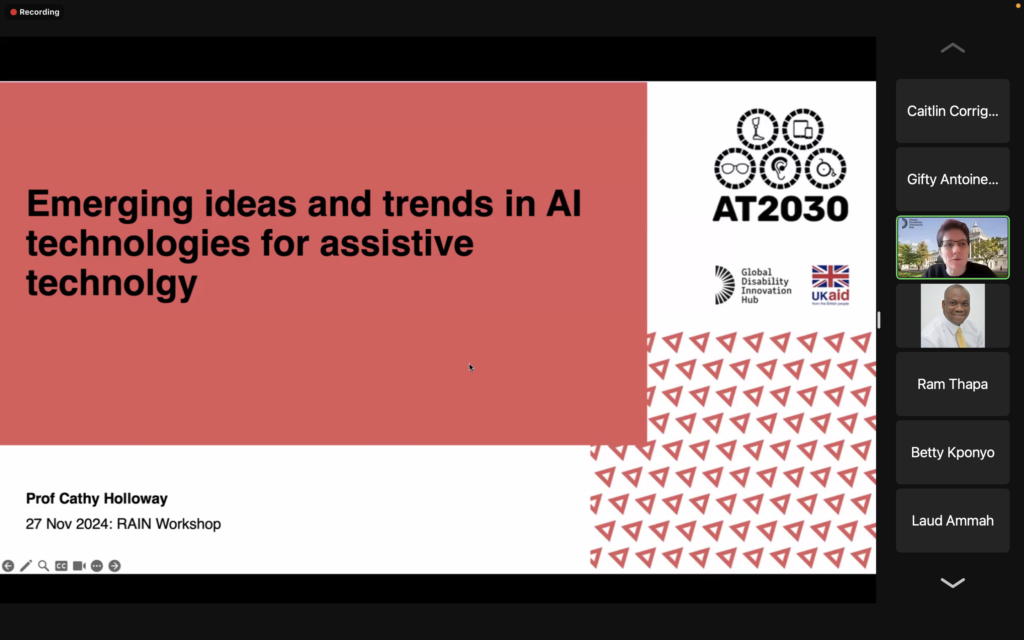
The keynote address delivered by Professor Catherine Holloway, co-founder of the Global Disability Innovation Hub at University College London (UCL), highlighted groundbreaking advancements such as generative AI, computer vision, and robotics that are revolutionising accessibility for PWDs. She showcased Google’s Project Euphonia, an initiative leveraging bespoke AI models and automatic speech recognition to empower individuals with speech impairments.
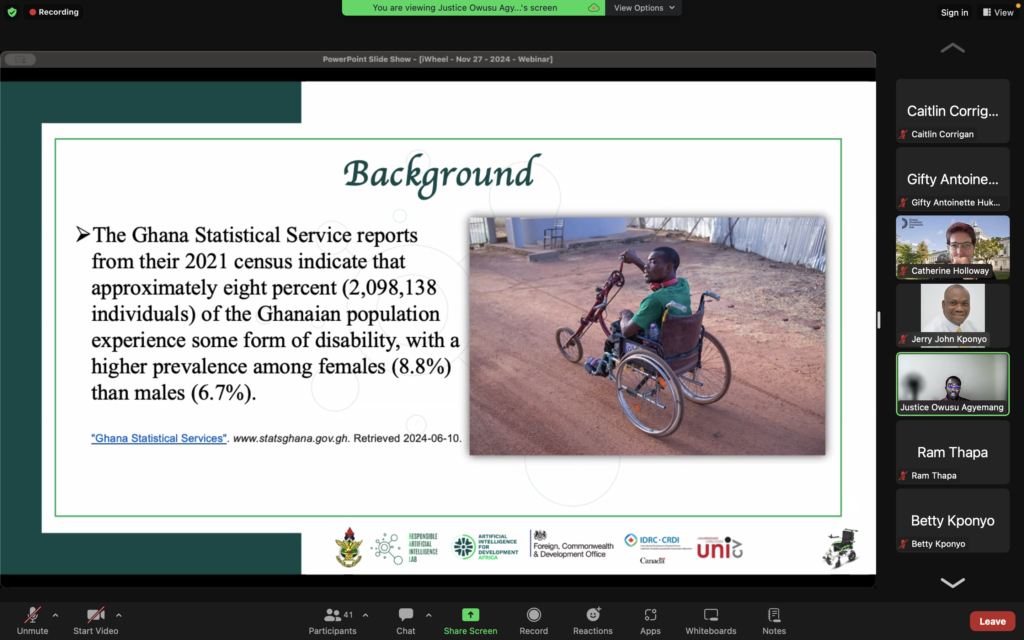
Dr. Justice Owusu Agyemang, Assistive Technologies Research Lead at RAIL, presented his team’s innovative work on AI-powered wheelchairs to improve mobility for individuals with physical disabilities. With about 18% of Ghanaians living with disabilities, Dr. Agyemang asserted that these assistive devices, when designed, will be tailored to the local needs of PWDs.
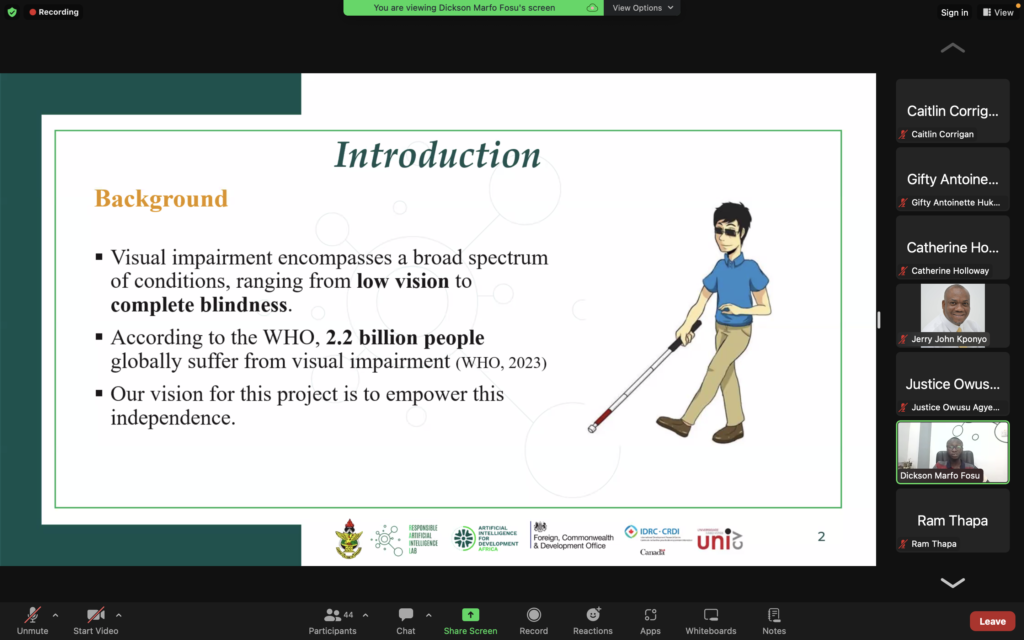
With over 2.2 billion people worldwide affected by visual impairments, the I-See Project led by Mr. Dickson Ofosu Marfo focuses on creating assistive aids to enhance navigation and observation. The team is developing tools for obstacle detection to improve safety and object recognition to increase independence. Their mission is to deliver durable and accessible devices to enhance the quality of life for visually impaired individuals.
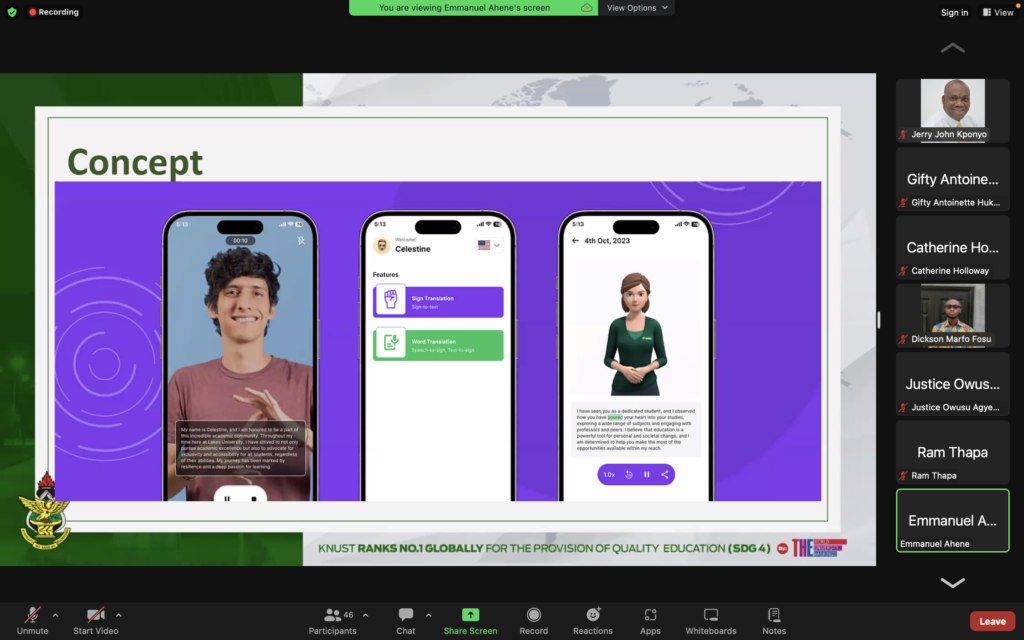
Dr. Emmanuel Ahene, Fellow in the Responsible AI and Inclusivity Theme, introduced the Sign Talk Project, an initiative addressing communication gaps for hearing-impaired individuals in healthcare. His team has developed tools to translate sign language into speech and vice versa using deep learning technologies and a growing 3,000-video dataset for training AI systems in Ghanaian sign language. The Sign Talk project creates a path toward inclusive and accessible healthcare.
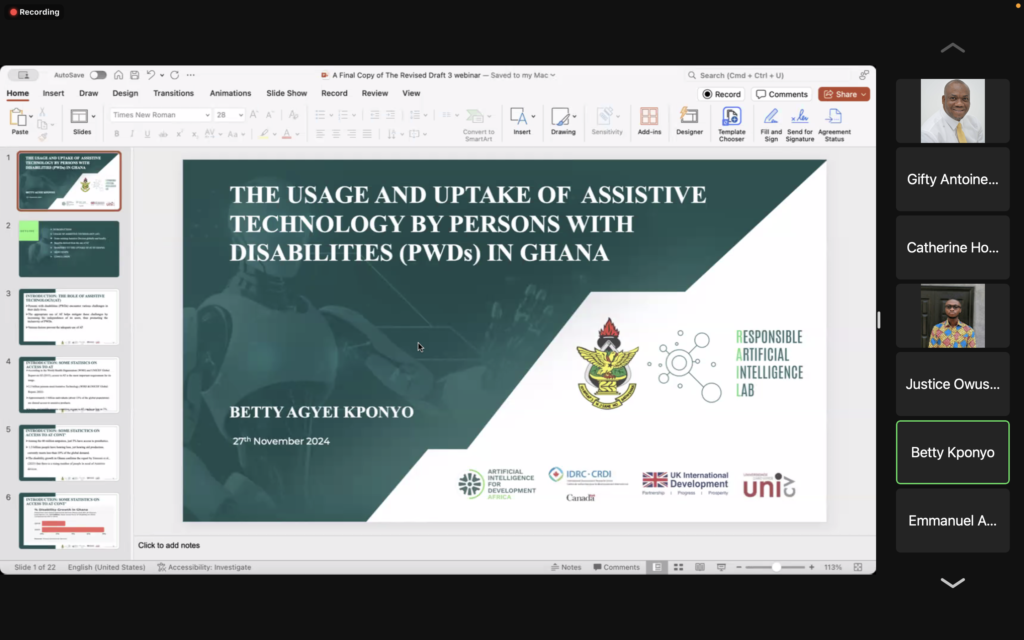
Mrs. Betty Agyei Kponyo, Fellow in the Responsible AI and Inclusivity Theme, addressed the persistent challenges hindering PWDs in Ghana from accessing assistive technologies. Her team’s research identified:
- High costs of devices.
- Environmental and infrastructure challenges that limit usability.
- Lack of awareness among caregivers and stakeholders.
Her team is committed to engaging with key stakeholders to provide valuable information to assistive device designers and developers. The goal is to create more practical and affordable solutions that maximise the impact of assistive technologies, enhance inclusivity, and promote independence for persons with disabilities (PWDs) in Ghana.
Prof. Holloway concluded the workshop by announcing plans to expand Google’s Project Euphonia to Ghana, integrating local languages and cultural contexts into its AI models.
Prof. Jerry John Kponyo wrapped up the event with a resounding call to action:
“Let us make the world a better place, leaving no one behind.” These words encapsulated the workshop’s mission, inspiring participants to advocate for AI-driven solutions that champion inclusivity, empowerment, and accessibility.
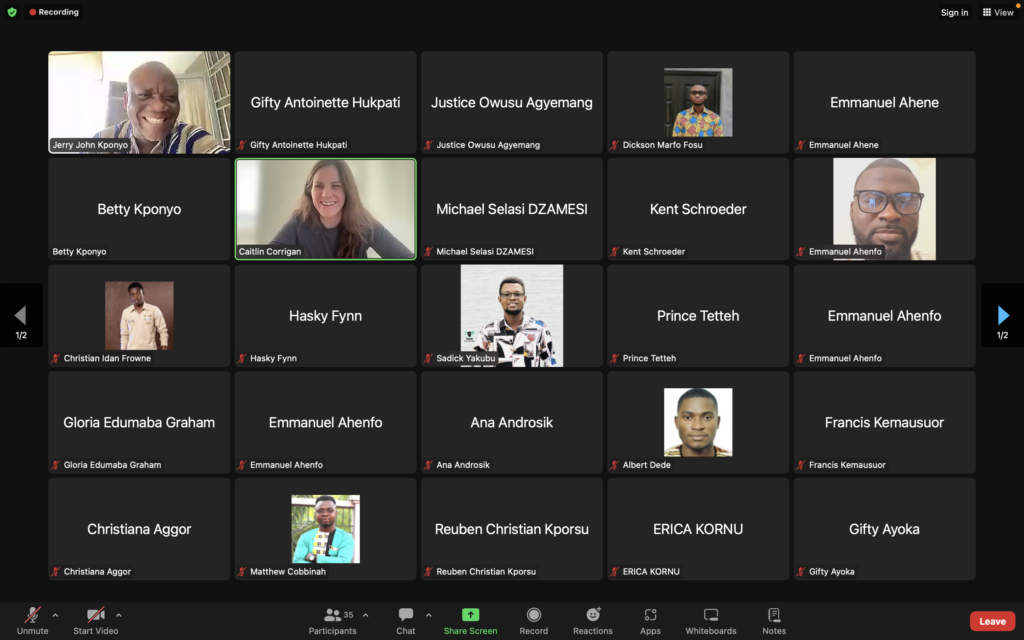
The Responsible AI Network – Africa Workshop provided an insightful glimpse into the future of inclusive AI technologies. From AI-powered wheelchairs to sign language translation tools, the innovations discussed reaffirmed the potential of AI to bridge societal gaps and empower marginalised communities.
Through sustained collaboration and commitment to responsible innovation, AI can pave the way for a more inclusive world where every individual thrives.